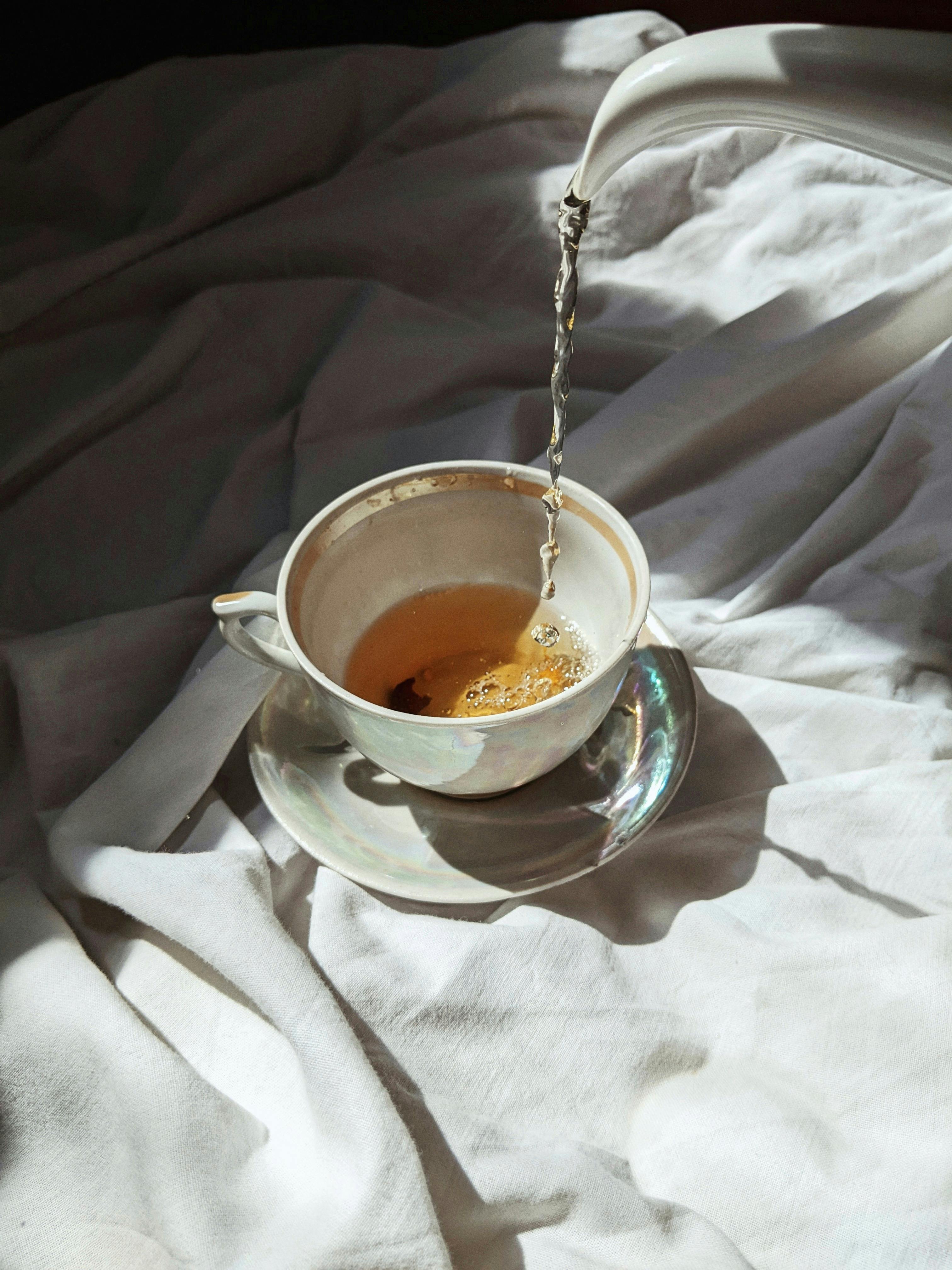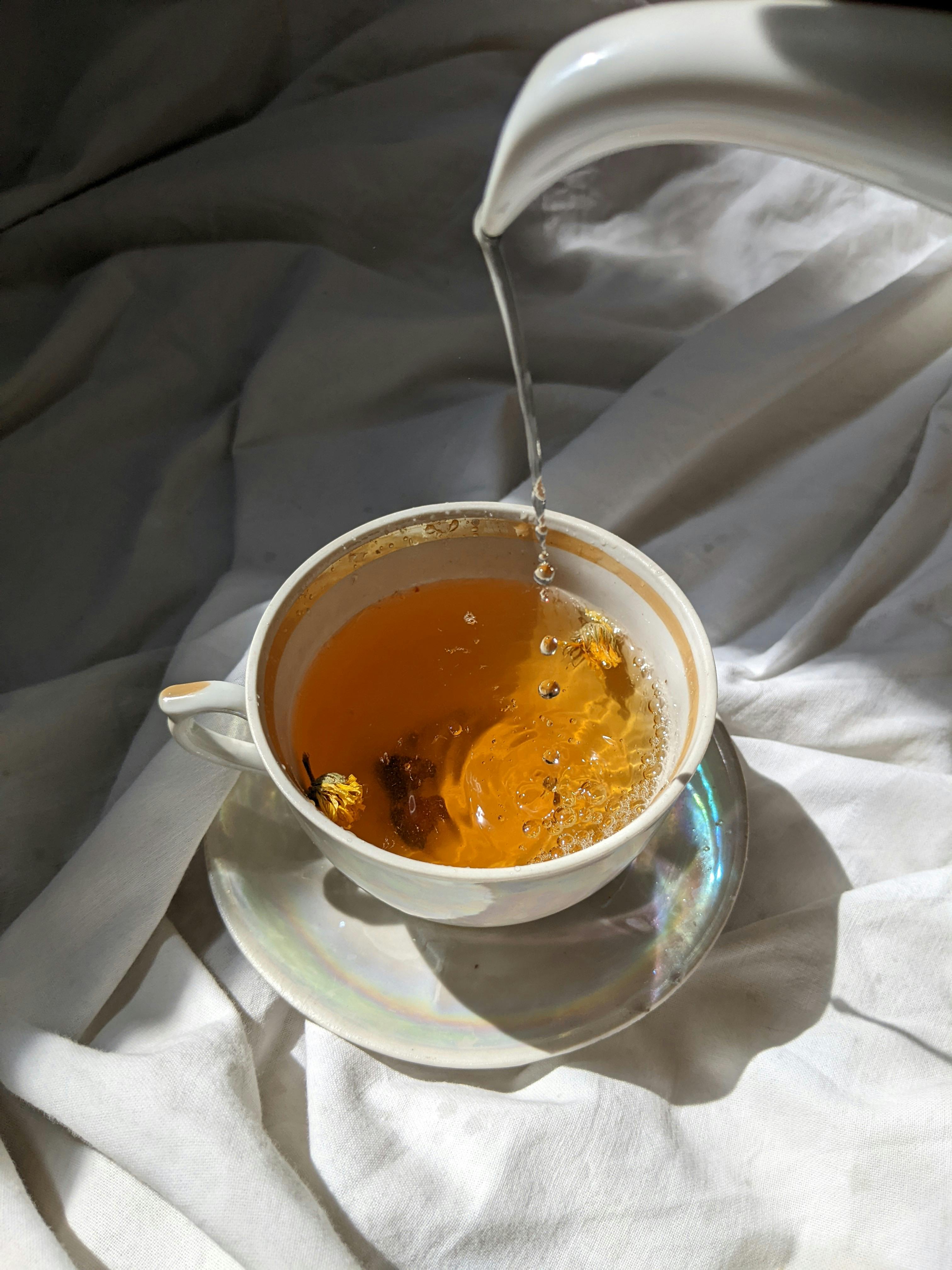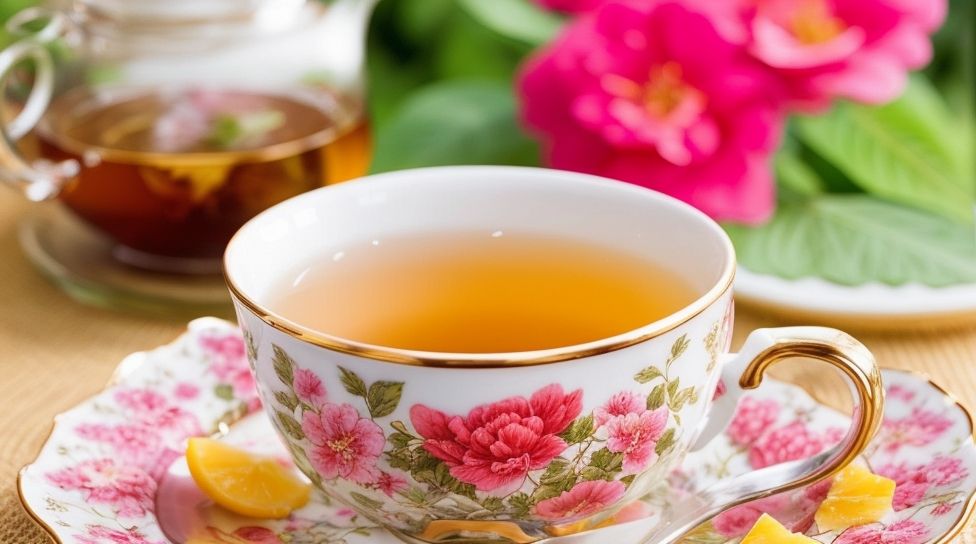
I’ve spent countless hours brewing, tasting, and researching to bring you the ultimate guide on finding the best black tea. In “Unveiling the Secrets: What is the Best Black Tea,” I’ll share my fascinating journey exploring various black teas from around the globe, making your future black tea choices a breeze. Let’s embark on this exciting expedition to discover the richness and depth that the world of black tea has to offer.
Understanding Black Tea
Definition of black tea
When we talk about black tea, we’re talking about the most robust and highly caffeinated variety of tea, often known for its strong flavor profile. Black tea originates from the Camellia sinensis plant and gets its dark color from a process called full oxidation; it’s this very process that also imparts the unique flavors prevalent in black tea.
Process of making black tea
The journey from the tea plant to your cup is fascinating. It begins with the plucking of leaves that are then withered in the fresh, open air. This helps reduce the water content in the leaves. They’re then rolled to break the cellular structure and expose enzymes to oxygen, leading to the next stage, oxidation. The leaves are left to oxidize, turning a dark brown-black color, giving black tea its name. The last essential step involves firing or drying the leaves, locking in all the flavors.
Regions where black tea is grown
When it comes to black tea cultivation, certain regions around the world stand out for their unique contribution. Assam and Darjeeling in India, Yunnan in China, Sri Lanka (Ceylon), and Kenya are among the leading black tea producers. Each region’s tea has a distinct taste dependent on the soil, climate, and cultivation practices unique to each area.
Health benefits of black tea
Don’t let the complex, bold flavors of black tea distract you from its significant health benefits. It is abundant in antioxidants like flavonoids that help prevent cell damage. It can also improve heart health, lowering risk factors for heart disease, decrease LDL Cholesterol and potentially lower blood sugar levels. To top it off, black tea can boost your energy levels, thanks to its relatively high caffeine content.
Types of Black Tea
Assam tea
Produced in the Northeastern part of India, Assam tea is bold, malty, and rich. Known for its vibrant color and full-bodied flavor, Assam is often used as a base for many English breakfast blends.
Darjeeling tea
Grown in the sloping hills of Darjeeling, India, this tea is often referred to as the ‘champagne of teas’ due to its distinctive, muscatel flavor and floral aroma. Its flavor subtly changes with each harvest, making it a truly unique black tea.
Ceylon tea
Hailing from Sri Lanka, previously known as Ceylon, Ceylon tea has a crisp aroma and citrusy notes. It can range from strong and full-bodied to lighter and more delicate, depending on where it’s grown within the country.
Keemun tea
As one of the most famous Chinese black teas, Keemun tea offers a winey, fruity taste with smoky, toasty nuances. Its mellow yet complex flavor profile and slight sweetness make it a popular choice among tea lovers.
Nilgiri tea
Grown in the high-altitude region of Nilgiris in South India, Nilgiri tea is fragrant and aromatic. It has a bright, brisk taste complemented with subtle fruity and floral notes.
Yunnan black tea
Hailing from Yunnan province in China, this tea often has a sweet, malty character and is often described as having a peppery note or hint of dark chocolate in its smooth finish.
Flavors and Aromas of Black Tea
Taste profile of popular black teas
Every black tea has its unique profile, often linked to its origin. Assam tea, bold and malty; Darjeeling, floral and muscatel; Ceylon, crisp with citrusy notes; Keemun, winey and fruity with a hint of smoky; Nilgiri, bright and brisk with a hint of floral; Yunnan, sweet with a peppery finish.
Understanding aromas
The aroma of black tea can be as multifaceted as its flavors. Depending on its origin and processing, black teas can have floral, fruity, malty, or smoky aromas. These pleasant aromas can greatly enhance your overall tea drinking experience.
How to induce distinct flavors and aromas
Various factors influence the aroma and flavor of black tea, starting from the tea plant variety, the terrain where it’s grown, the weather, the time of harvest, and the processing methods. Even when brewing, the water temperature and steeping time can affect the tea’s final taste and aroma.
Best-selling Brands of Black Tea
Brand profiles
All across the globe, many brands specialize in providing high-quality black tea. Names like Twinings, Lipton, Tazo, Harney & Sons, and Yorkshire Tea are known for their consistently excellent black teas. Each of these has a unique story, commitment to quality, and carries a variety of flavors appealing to a broad audience.
Taste and flavor of popular black tea brands
Each of the popular black tea brands brings a range of flavors to the table. Some, like Twinings, boast a vast line-up, spanning from traditional black teas to flavored varieties. On the other hand, brands like Yorkshire Tea pride themselves on a straightforward, robust black tea loved by many for its strong, classic taste.
Price range of best-selling brands
The price range for these best-selling black teas can vary significantly. Basic black tea bags from brands like Lipton can be fairly economical, while specialty loose leaf black teas, like those from Harney & Sons, can command a premium price. But remember, the best black tea for you isn’t necessarily the most expensive one—it’s the one that delights your palate.
Where to buy best-selling black tea brands
Purchasing these popular black tea brands has never been easier. They’re available in most grocery stores, and for more convenience, they’re just a click away on various online shopping platforms.
Loose-leaf Black Tea or Bagged Black Tea
The debate: loose tea vs. bagged tea
The choice between loose-leaf and bagged black tea has been a topic of fervent discussion among tea lovers. While bagged tea offers convenience, loose-leaf tea could provide a richer, more nuanced flavor profile.
Quality comparison: loose leaf vs tea bags
Typically, loose-leaf teas are often of higher quality as they consist of whole or large pieces of leaves, which helps to maintain the tea’s flavor and aroma. In comparison, bagged teas often contain smaller pieces or dust, which could influence the tea’s overall taste and quality.
Flavor profile: loose tea vs. bagged tea
The difference in the size and cut of the tea leaves impacts the flavor profile significantly. Loose-leaf teas often infuse slower, resulting in a more nuanced flavor and aroma. On the other hand, tea bags, with their smaller leaf size, infuse quickly, producing a bold and robust flavor but potentially lacking in complexity.
The Art of Brewing Black Tea
Brewing methodology
Brewing black tea is almost an art form. Typically, you start with fresh, pure, cold filtered water. Heat the water until it just reaches boiling point, then pour it over your tea leaves.
Equipments required
In terms of equipment, you would need a tea kettle or pot for boiling the water, a teapot or cup for brewing the tea, a tea infuser if you’re using loose leaf tea, and a spoon for stirring if you’re adding any extras like sugar or milk.
Brewing time for different types of black tea
The brewing time essentially depends on how strong you like your tea. But as a rough guide, it can range from 2 to 5 minutes for most types of black tea. The longer you let the tea steep, the more intense the flavor will become.
Ideal water temperature
The boiling point of water, 212°F or 100°C, is usually ideal for most black teas. However, some black teas, like Darjeeling, might need a slightly lower temperature to avoid over-extraction that could lead to bitterness.
Pairing Black Tea with Food
Food items to pair with black tea
Black tea pairs beautifully with a variety of food items. The strong flavor of Assam stands up to hearty meals like English breakfast or chicken stew. Delicate Darjeeling complements pastries and cakes, while Ceylon with its citrusy notes is a great match with seafood and spice-infused dishes.
The art of tea and food pairing
The art of pairing revolves around complementing or contrasting flavors. Rich, robust black teas might pair well with spicier, hearty meals, while lighter teas might work better with more delicate, sweet dishes. But ultimately, it’s all about personal preference and experimentation.
Cultural food and tea pairing practices
In different cultures, black tea is paired uniquely with local cuisines. In the UK, black tea is often enjoyed with breakfast or afternoon snacks like biscuits and cakes. In India, it’s typically consumed with milk and sugar and paired with spicy snacks or meals.
Testing Tea Quality
How to evaluate tea quality
Evaluating tea quality involves multiple aspects such as appearance, aroma, taste, and how the flavor evolves on your palate. High-quality black tea leaves generally have a uniform color and are well-formed. The aroma should be fresh and clean, and the taste should have a certain level of complexity, revealing different layers of flavors as you sip.
Difference between high and low-quality tea
One key difference between high and low-quality tea is the complexity of flavor. High-quality tea offers a journey of evolving flavors, while lower quality tea might only bring forward a simple, often flat taste. Additionally, the appearance and aroma could be markedly different, with high-quality tea presenting a vibrant color and enticing aroma.
Price vs Quality in black tea
A higher price might often signal higher quality, but it’s not always the case. The best way is to trust your senses and judgment. Some reasonably priced black teas can also offer a great flavor and aroma profile. It’s about exploring and finding what you best enjoy.
Sensory Evaluation of Black Tea
Visual appearance
A tea’s visual appearance can tell you a lot about its quality and can serve as the first step in sensory evaluation. The tea leaves should have a uniform, rich color, reflective of its type. And when brewed, the tea should produce a clear and bright liquor.
Smell
The aroma or smell is a crucial component of the tea-drinking experience. It should be fresh and pleasing. Depending on the type of black tea, this could range from floral, fruity, to malty or smoky.
Taste
Next is obviously the taste. Does the taste match the aroma? It should have a clean taste with a depth of flavors, setting apart the higher quality black teas.
Aftertaste
Many premium teas leave a pleasant aftertaste or finish, which lingers and continues to develop even after you have finished your tea. It’s one of the delights of savoring a high-quality black tea.
Mouthfeel
Another lesser-known aspect is the mouthfeel. A rich, full-bodied black tea may leave a thick or creamy sensation in the mouth, while others might feel light or smooth.
Incorporating Black Tea into your Lifestyle
Making tea a daily ritual
Making tea a part of your daily routine is pretty simple. Start your day with a strong cup of black tea or indulge in a mid-afternoon tea break. You can experiment with different black teas or stick with your favorite blend.
Health and wellness benefits
Regularly consuming black tea can bring about several health and wellness benefits. Apart from its potential health benefits, the act of making and drinking tea can serve as a calming, therapeutic ritual.
Tea accessories and tea-ware to enhance experience
Investing in some basic tea accessories can significantly enhance your tea-drinking experience. A beautiful teacup, a sturdy teapot, a precise tea infuser for loose leaf tea—all these can make your tea time more enjoyable and stress-free.
In conclusion, with so many delightful varieties, brewing techniques, and health benefits, black tea holds a timeless appeal. Whether you’re a seasoned tea connoisseur or someone newly charmed by this enticing beverage, the world of black tea invites exploration and enjoyment. So, brew yourself a cup, sit back, and savor the flavor! There’s truly a black tea out there for everyone.










